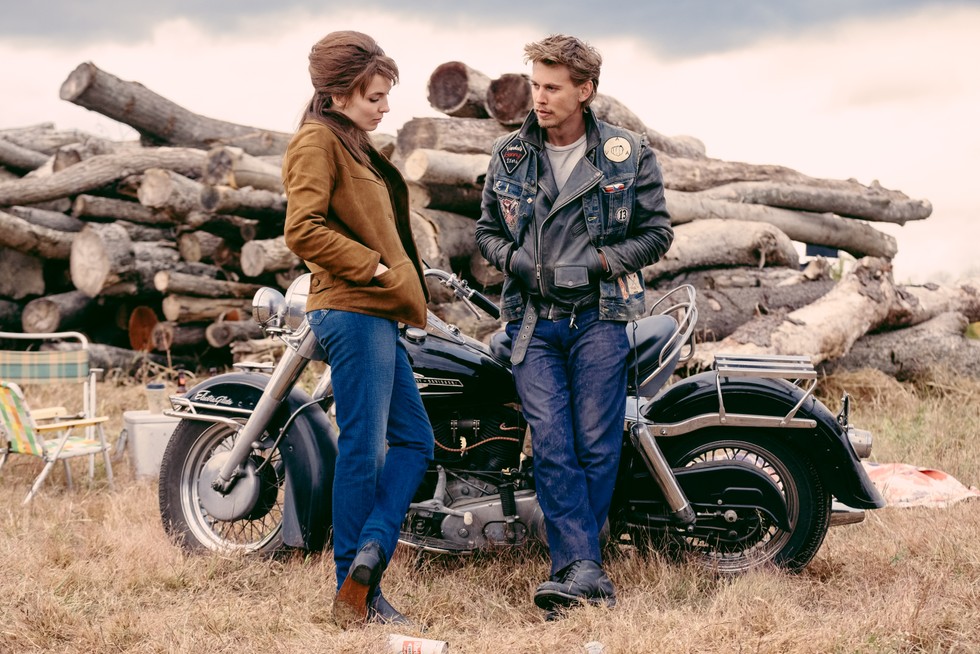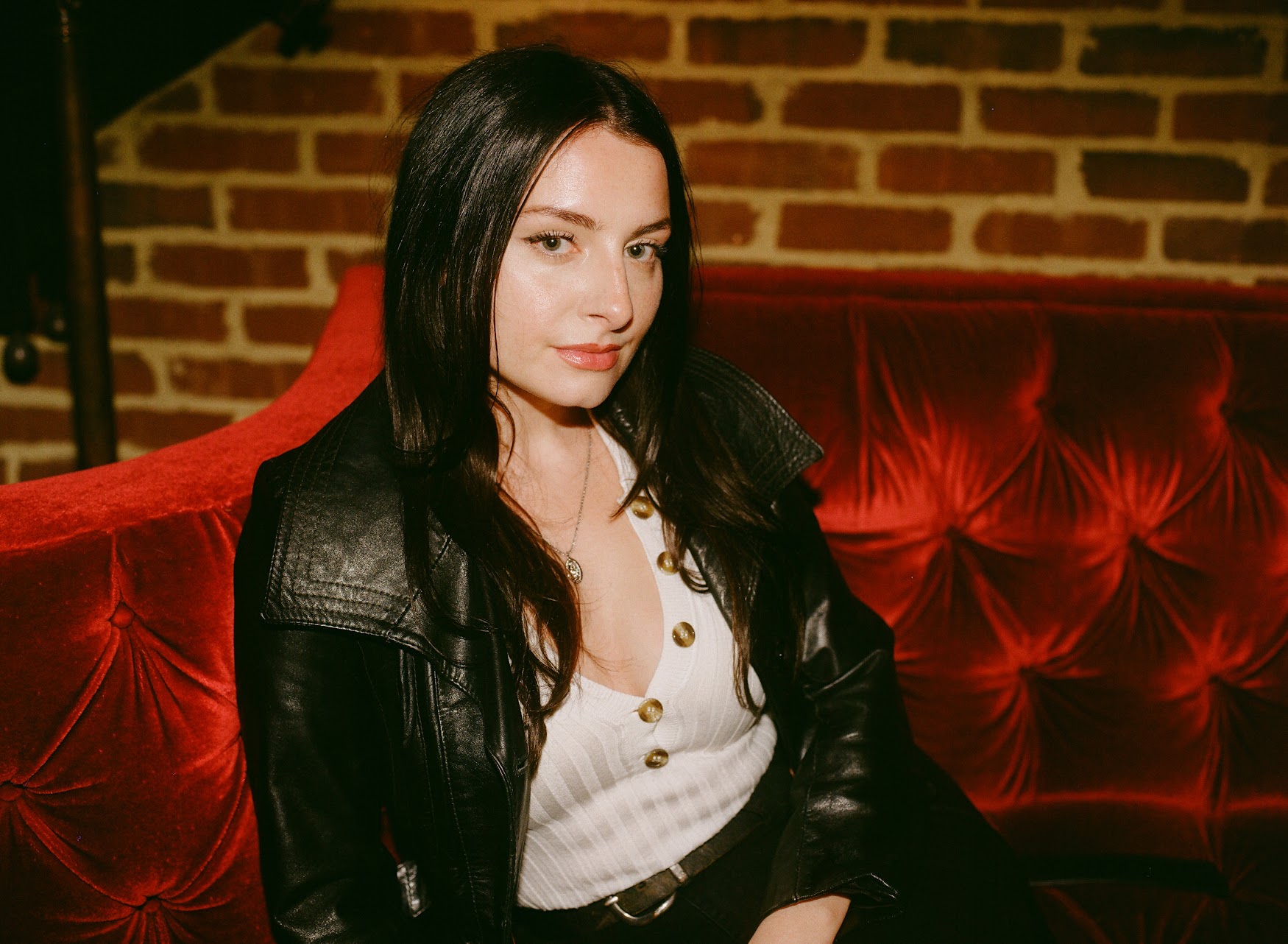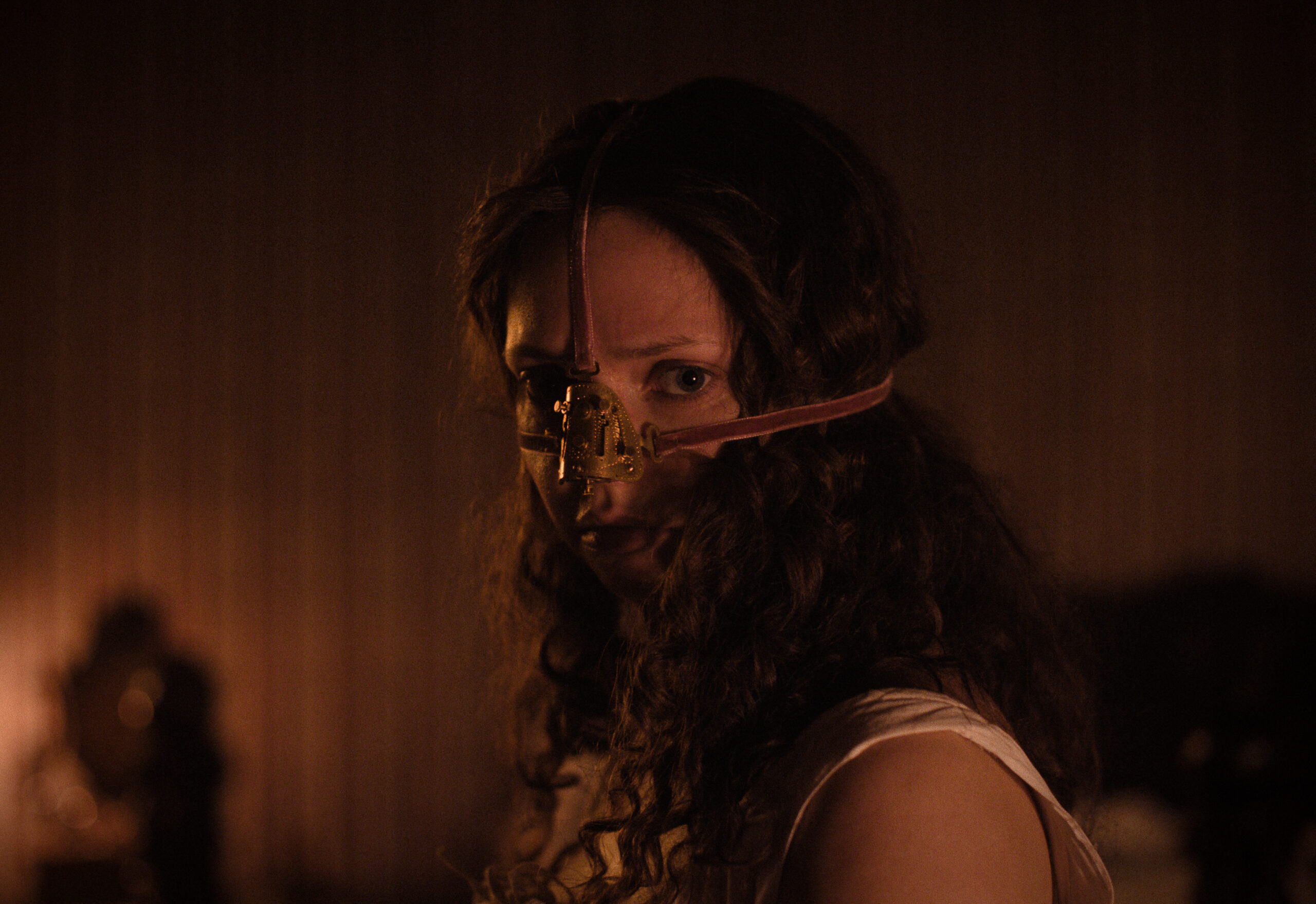Tom Hardy watches in awe as Brando pops his collar on his living room TV. Hardy’s Johnny is the leader of the Vandals, a motorcycle club in 1960s Chicago where men come to be who they want to be: needed again, and by somebody who truly needs them. The ultimate male post-war fantasy is writ large by Jeff Nichols in The Bikeriders, starring Jodie Comer, Austin Butler, and Tom Hardy as a trio of lost souls looking for purpose and trying desperately to find it in each other in their own repressed, unexpressed, and deeply sad ways.
Pastiche and half-hearted evocation run rampant in Nichols’s lukewarm Scorsese impression while he transposes the structure and rhythms of Goodfellas onto this era of American male anxiety, but without much of the prior film’s substance. The film itself is handsomely made and earns its stripes with very fine craft and production value, but Nichols just misses the mark of saying anything quite so interesting. This isn’t to diminish the minute majesty of watching a healthily-budgeted and star-driven drama for adults. It can feel like a little miracle nowadays to watch well-lit adults deep in thorny conversation, but sometimes the bar can’t be a constantly moving goalpost. The movie looks nice enough, but Adam Stone’s cinematography falls flat when compared to Danny Lyon’s photography book from which the film takes its name. Shot for shot recreations are foolhardy, especially given the montage of Lyon’s endlessly more evocative photos in the credits.

However, the ensemble of stars, including not just Comer, Hardy, and Butler, but Mike Faist, Michael Shannon, Damon Herriman, and Norman Reedus, really step up to the plate. Aside from the much mocked cornucopia of heavy voices, the cast poignantly embodies this self-imposed vagabond ennui. Hardy in particular commands the screen with his puffed chest and affected voice. These aren’t just actorly tics, they’re completely rounded insights into the world of a man outside his time and body.
Flanking him above the title on the marquee, Comer and Butler commit to their roles as Kathy and Benny in much more conventionally actorly manners, with affect being its own silo of their performance instead of something codified into their character. This, in its way, works for these two given their trajectory compared to Johnny’s. Comer’s Streep-esque accentwork and Butler’s overly peacocked tough guy swagger aren’t incongruous, so much as they inform how the tide has already shifted for Johnny and his company.

The shifting tide is only a harbinger for Johnny, but that tide entirely sweeps Kathy and Benny into their starcrossed romance. What Comer and Butler bring as capital-P Performers adds an innocence to their love that permeates the atmosphere of the movie and the Vandals’ world within it. Benny, as the feminine ideal of a biker, is this perfect object whose real desires are never really revealed in script or in performance. This isn’t one of the film’s myriad flaws, though, rather an interesting axis around which Comer and Hardy’s more dialed up characters revolve. Butler’s mystique in The Bikeriders is a unique mix of photoshoot sex appeal and old school movie star magnetism. He doesn’t bring much else to the part because there isn’t a lot there. Benny is this great wide canvas for which Kathy and Johnny project their every want and need. Butler’s butter-smooth voice and smirk drive that home.
As for Kathy, she’s ostensibly the heart of the movie (Comer is top-billed, she gets what seems to be most of the dialogue as well as the narration of the film), but she’s also a bit of the problem character for the script. Nichols never seems to figure out what drives her besides a need to belong somewhere. Her midwestern prim and proper demeanor and nasally speech are all great business which Comer attacks with aplomb, but her doe-eyed desire for a life beyond the limits of the club is never really explored beyond some quick moments between her and Faist’s plucky take on Lyon himself. Beyond the limits of what’s written, though, Comer shines as Kathy and no brighter than when selling her overwhelming attraction to Benny.
Benny is already running with Johnny and the Vandals when Kathy locks eyes with him across a bar early into the film, but that doesn’t mean Johnny can’t see the writing on the wall. They are of his generation, but on the very edge of it. Johnny can see the cusp of a new dawn breaking and does his best to hold onto it, and by extension onto Benny. Benny is the object of everybody’s desire in The Bikeriders, from cops to rivals, but especially from Johnny and Kathy alike. When, late into the film, Kathy tells Johnny, “He’s mine. You can’t have him,” Nichols prods at something far more interesting than any prominent subtext or text of the film.
The homoeroticism inherent to these clubs and gangs, leather-clad men locking eyes with each other across hazy bars, is not lost on Nichols, but it’s not where his interests lie. Johnny and Benny’s relationship is certainly sexy. One key scene between them, a profession of Johnny’s desperation and need for Benny as a new leader, is missing all but a kiss. However, Nichols doesn’t open that can of worms. Maybe because these men can’t. The film loses some depth to mine here, just as it does when Nichols gives short shrift to Kathy’s inner desires, but it just as much loses the evocation of Lyon’s photography, and the implied desire only goes so far. However, the expression of what was once repression is sort of the whole deal here. The open road calling to these free and easy riders is looked down upon in its way, they’re a target of the revolution of the 60s, an easy symbol of everything wrong with the country. That’s the battle they reckon with, they can’t deal with another, especially not one borne from desire. Neither, it seems, can the movie.
As that new dawn breaks, a new generation emerges, one with cut teeth and something to prove with real and genuine rage boiling inside them. These kids aren’t Brando fans and they aren’t wanderers. In the wake of their emergence, Johnny does all he can to recruit Benny as the new Vandals ringleader. But he, the manic pixie dream biker boy that he is, can’t accept. So when Johnny faces the music—that he’s just a Brando fan who wanted an escape and needs to make way for the flood—he comes to Kathy looking for Benny. When he finds he isn’t there, he still confides in Kathy. Their shared object of desire has torn some sort of unit apart. Some sort of unit that Nichols never gives enough time to in order to make a unit. This is a trio in service of an atmosphere and that is the ultimate failing of the movie. Only so much can be said in the unsaid. Performers are not substitutions for absent depths, try as actors and writers may to make that true. So in that moment between Kathy and Johnny, Comer and Hardy, they silently take stock of their desires, repressed, unexpressed, and deeply sad. Then he rides off.



